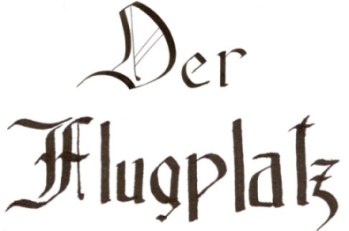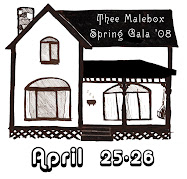I have the pleasure of working at a wonderful place known as Kanakuk
My main problem is this: artists have the ability to make ideas/philosophies/words more memorable and accessible, and therefore have a greater responsibility to be truthful with their work. Much of the “youth group theology” around today comes from kids getting their morals from Christian rock and life-application Bible studies. I personally think those two avenues of pursuing truth have some major problems, but aren’t bad in and of themselves. The problem is not always in the end result or the rule that’s being followed but the source of it. As a believer, you lose your footing by taking on other standards of good apart from God. This doesn’t mean that everything you do will be sin or evil, but it does mean that you’ve placed your faith in something else, some other authority of right and wrong.
I’d like to begin by looking at Marvell’s Dialogue Between the Resolved Soul and Created Pleasure, with the help of Thomas Wheeler’s book Andrew Marvell Revisited. Wheeler notes that in the dialogue, the Soul is confined to speaking in only eight syllable couplets, while the Pleasure is allowed a variety of line lengths, rhyme schemes and eight more lines than the body. This portrays an image of the soul being stuffy, organized, and stiff, while the Pleasure comes off as free and refreshing. He also points out that nothing which Pleasure offers is “sin,” but it seems that the Soul sees them as opportunities for it. Wheeler then offers that perhaps this isn’t a Christian poem to be read in Christian context. I would argue that the same way I’d deal with a pastor writing an allegorical piece of fiction without using the word Jesus; given Marvell’s history and previous writing, it doesn’t make much sense to separate them from this poem, especially since it deals with spiritual matters. If it were a poem about spelunking, I might be more inclined to take it at face value without thinking of the Christian parallel. Wheeler then makes a great point that the poem seems to be nearer to Platonism than Christianity. I would agree, in that so far the Soul seems to be resisting Pleasure for no good reason other than an assumption that anything that feels good is bad.
I think that Wheeler is spot on about nothing the Pleasure offering being sin. It’s important to note that because of how the Soul reacts, as if it were not just bad but a blockade between it and heaven. So thus far we have the Soul “valiantly” standing up to the Pleasures of the world, cheered on by the Chorus character. It’s interesting that this is pretty common to most of us, the idea that the Soul’s job is to ward off the evil of Pleasure with abstinence from it. Here we run into the problem of assumption, relating back to the idea of accepted Christian behavior. A close look at instruction in the Bible doesn’t tell us in fact, to abstain from good things. We have a desire for the opposite sex, there’s marriage. There are good things to eat and drink here, and we have tastebuds and appetites that can be excited and satiated. It seems more that God has given a right way for desire to be fulfilled, and the people who fulfill them other ways give the desire a bad name. Drunkards make the beer look evil. Promiscuous fraternity brothers make sexual desire look like a dirty thing. Sadly, often the response of believers is to nix anything that the world has made look bad.
Why is this? Marvell addresses the topic in The Rehearsal Transposed, by saying that people’s own consciences are often their best judges, and one who has the Law on his side feels even better. Isabel MacCaffrey, in her Notes on Marvell’s Poetry, made a wonderful point on this, recognizing that Marvell knew that conscience without any law is helpless, but that men are also much more comfortable with just a set of laws to follow. Legalism, following a list of do’s and don’ts has the positive effect of apparent goodness on the outside, without the soul-scouring required of real righteousness. Thus my problem with Kanakuk.
In Marvell’s other dialogue, Between Soul and Body, Marvell seems to take a different approach in representing the two speakers. Both Soul and Body speak in eight syllable couplets, instead of giving one a more distinct voice. In this poem we get more of a unique view of the bond between the two. Both have very visual arguments against each other, the Soul viewing the Body as a dungeon, and the Body seeing the Soul as a disease. It helps to mention that the medieval church didn’t wholly understand what was meant in the New Testament as “flesh” and “spirit.” From the Greek, they understood them to be terms designating two parts of a man – the higher and lower natures. We can see this in Paul’s first letter to the Corinthians where he compares individual members of the church as parts of the body, and acknowledges that there are parts and functions that deserve and receive more or less honor (1 Cor. 12:22-24). The church however took this to mean that things like sex, eating, and working belonged to the “lower” nature, while pious acts like prayer, fasting, and celibacy belonged to the higher. So here we see a bit of the history of the typical “physical things are bad” mindset, the faults of which I’ll address soon.
Marvell goes on in Rehearsal to comment directly on this idea of the responsibility of the artist; “How wretchedly, the one, to uphold his fiction, must incite princes to persecution and tyranny, degrade grace to morality, debauch conscience against its own principles, distort and misinterpret the Scripture, fill the whole world with blood, execution, and massacre; while the other needs and requires no more but a peaceable and unprejudicat soul, and the native simplicity of a Christian spirit!” Marvell is asserting here that it’s a sham to twist your words around truth for the sake of a story, and that relying on the truth of Christ will produce the better work in the end.
So is someone “distorting and misinterpreting Scripture” when they take this stance? Wheeler suggests again in his commentary of A Dialogue Between Soul and Body that the arguments aren’t presented in Christian terms, that the Body’s accusations actually reverse the traditional Christian contrast between flesh and spirit. Marvell’s Body here accuses the Soul of allowing it to sin. Wheeler then said that this abandonment of tradition freed Marvell to make this contest original and open. I think he’s right, but maybe not in the same way he thinks he is. A quick glance at some more notes from Paul reveal that there are two bodies, the earthly and the heavenly. He goes on to say how the earthly body is sown in dishonor and raised to a heavenly one in glory (1 Cor.
It would be wrong of me to leave out one of the more misquoted verses in the Bible that relates to this discussion. 1 Cor. 6:19 asks the believers at Corinth if they’re aware that their bodies are temples of the Holy Spirit, and has been the ammunition of many a nervous mother smelling cigarette smoke or beer on her son’s jacket. A little context reveals that Paul is discussing sexual purity, not the evils of alcohol. But in regards to our discussion of the relationship between the body and soul, it seems worth noting that, unlike other religions where the god dwells in temples and mountains, Christians claim that their bodies are the housing of one aspect of the Trinity. How can men make the claim that the body is some worthless piece of meat, dragging the virtuous soul into sin when part of our God lives in it?
I would argue that Marvell’s dialogues are in fact a knock on this thinking and, and not advocating it at all. He seems to share my distaste for invented theology as well, and even goes so far as to say that it incites “blood, execution, and massacre.” In light of his writing on the subject in The Rehearsal Transposed, and his literary history, it follows that when the chorus speaks in the end “Triumph, triumph, victorious soul!/The world has not one pleasure more:” that Marvell’s attitude was one of “Good for you soul, you managed to beat back all of the pleasures of life. But….that’s not what they were there for.”


3 comments:
well said, my friend... not having the intimate knowledge that you have of this peom(s), I can say that you have presented a case against this legalistic attitude. You know my love/hate relationship with "Kanakult", especially after having to cover up my tattoo's all summer long... blah.
I often go back and forth on the issue of whether or not to work there (or places like it), since it seems a part of me always has to lay dormant and I have to, in some senses, be fake. I often get told, you have no respect for authority, or you don't like authority, but that is not the case... Authority that is right and based on truth, I accept and embrace, but these other rules that are based solely on one man's opinion and are given as "True Athority", I cannot respect.
I had to read it twice, ;) but I like the way you present the line variations in the poem and how they give more emphasis to the meaning of the poem. So Marvell was a kindred spirit, hating legalism. Cool. I recall only reading one of his poems in Brittish Lit. I don't recall which it was though...especially with it being finals week.
At first I thought you didn't resolve your thesis, but in rereading it--you did very effectively. It is like laying out different clippings and showing their similarities and how Marvell comes against twisting words to support ones theology, by illustrating it. Hmmmm interesting. ;)
Thanks for posting it.
You and Sam are making me apprehensive about Kanukuk! --nah I'm kidding. I realized last year that every ministry has their faults or there interpretation. While I agree with you guys and don't think that having tattoos means you are going to hell, Kids from a lot of backgrounds come to Kanukuk right? So, isn't it better to err on the side of conservative legalism to maintain order? Perhaps it isn't, but I haven't seen an organization that has been successful in teaching kids to go by the leading of the spirit--rather than obey set rules for the camp.
But then, you guys are talking about simply tattoo rules and appearance/grey area rules?
Perhaps it can be done with more care and prayer of the staff...hmm...now my brain is going and I'm writing too long of a post. So, have a nice week.
Wow, lots of spelling mistakes..haha..yah I'm going to be a writer..lol oh well. That's what spell check is for. Sorry about that. But you know..the eyes only take in the first and last letters...or something. ;)
Post a Comment